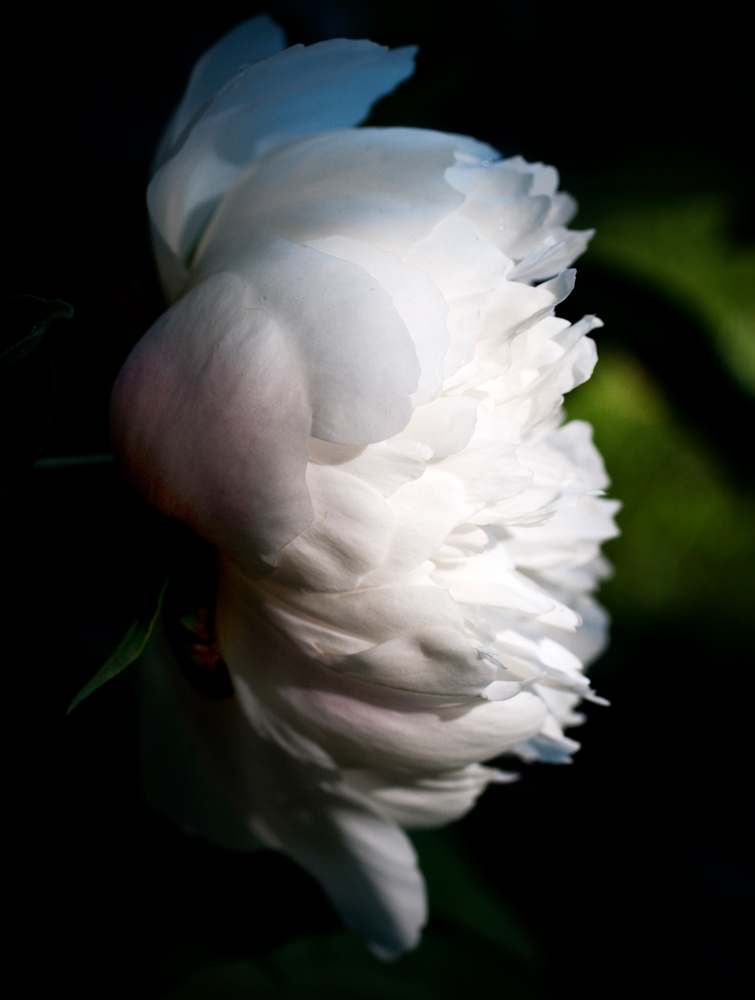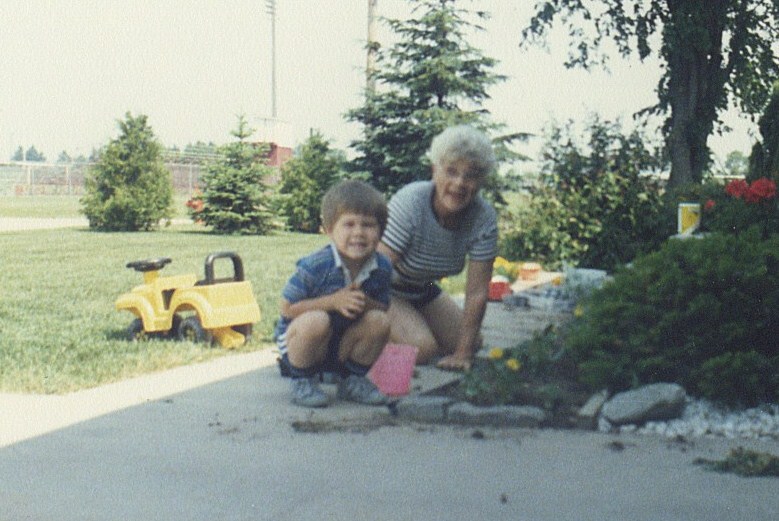
Let’s be honest, this weather is absolutely BRUTAL. The end of a llloooonnnnggg holiday break is BRUTAL. And being cooped up in the house for days on end is BRUTAL.
With the temperature about million degrees below zero, and given that we are buried under a mountain of snow, several times over the past few days I found myself daydreaming of the hot, sweltering summer days. Basically, I found myself wishing time away.
But then I remembered that about about six months ago, I decided that I just didn’t want to wish time away anymore. (Of course, I came to this realization during the warm days of summer and not the bitter days of winter because who would come to such a resolution in middle of a Midwestern winter?!?!)
In any event, all of those thoughts on the past and the present and the future got me thinking about this post on my grandma and gardening in the middle of winter. It is one of my absolutely FAVORITE posts that I have written, and since it seems particularly fitting today, I thought that I would repost it.
**********
When I was a kid, my paternal grandparents came to stay with us almost every weekend. They didn’t live far – just an hour and a half away in Milwaukee – so their frequent visits were a mainstay in our weekend plans.
The frequency of their visits lent a sort of familiarity to their presence. Rather than guests, they were quasi-residents and all of us went about our business as usual. My dad would still go into the office on Sunday mornings to do payroll and other bookkeeping tasks. My mom would run her countless errands. My sister, brother, and I would go to swim practices and hang out with our friends. My grandpa would read the newspaper and smoke his pipe. And my grandma, regardless of the season, would garden.
Gardening, to her, was a year-round activity. At the first signs of Spring, the snow barely melted and the earth still a sodden mess, the weekly visits to Stein’s would begin for bulbs or fertilizer or a new spade. Summer, obviously, involved constant pruning and watering. Fall brought raking mounds of leaves that were then used to cover the beloved roses with a blanket of amber and crimson-colored, crackly foliage. And even in the Winter she was gardening, spending hours poring over the glossy pages of the new Jackson and Perkins catalogue – the gardener’s holy book, at least in our house.
There are many things that I have inherited from my grandma – her impatience, her outspokenness, her love of crossword puzzles and 500 Rummy, for instance – but her affection for gardening is not among them. I could never understand how she and my dad could spend so many hours tending to flower beds and gardens for something that yielded so little in return. Sure, the yard was absolutely gorgeous for two or three months of the year, but their efforts extended throughout all twelve months. And I could never understand why she would spend so many hours taking care of Summer’s flora when the ground was still swathed in frosty white snow. This was the time for sledding or cuddling up under a blanket with a good book, not the time for additional chores related to something that wouldn’t be achieved for months to come. To me, the investment just did not come close to yielding an adequate return.
But for my grandma, plants and flowers were her life. In fact, gardening is synonymous with my grandma. I cannot think of one without thinking of the other. She visibly came alive when her hands were stained brown, calloused and gritty. She tended to those flowers with an affection and warmth that she sometimes could not provide in her human relationships. My grandma led a full and often challenging life – raised poor in rural Pennsylvania, she moved to Milwaukee as a young woman, married my grandfather and raised six children, overcame an alcohol addiction, and learned to drive when she was in her 60s. Gardening was her escape; the dirt her savior; flowers her soul mates.
Maybe she loved plants and flowers because they didn’t judge or question or criticize. Maybe she connected with them because she found a spiritual connection through nature. Or perhaps she enjoyed gardening simply because it gave her hands something to do in order to quiet her mind. Whatever the reason, gardening was her world, her everything. It was her past, her present, and her future.
Psychologists, philosophers, writers, religious leaders, and spiritual sages alike – from Eckhart Tolle and Henry David Thoreau to Mahatma Gandhi and Buddha – tell us that in order to be happy we must live in the present. That we can’t dwell in an expired past, nor can we count on an unpredictable future. As Meister Eckhart said, “There exists only the present instant… a Now which always and without end is itself new. There is no yesterday nor any tomorrow, but only Now, as it was a thousand years ago and as it will be a thousand years hence.”
But maybe living in the present means occasionally spending some time remembering the past. Maybe to be at peace in the present, we need to sometimes spend a few moments honoring the past, albeit with truth and authenticity. Maybe to cultivate a stronger relationship with the now, we need to spend some time reminiscing about the people that occupy the pages of our past – like a strong, vibrant, and flawed woman named Stella who cussed like a truck driver and told dirty jokes, who walked on the beach in just a bra and pair of shorts as a stand-in swimsuit, who made apple dumplings that tasted like a hug. A woman named Stella who loved to garden.
And maybe living in the present means that we need to spend a little time hoping for a brighter and warmer future. Maybe in order to more fully enjoy today, we sometimes need to daydream and fantasize about tomorrow, about summer rains and dazzling sunsets. And perhaps in order to really come alive in the now, we occasionally need to tend to June’s vibrant, blooming flowers on a cold January morning.

What memories of the past bring you peace in the present? What hopes and plans for the future allow you to come alive in the now?

Comments are closed.